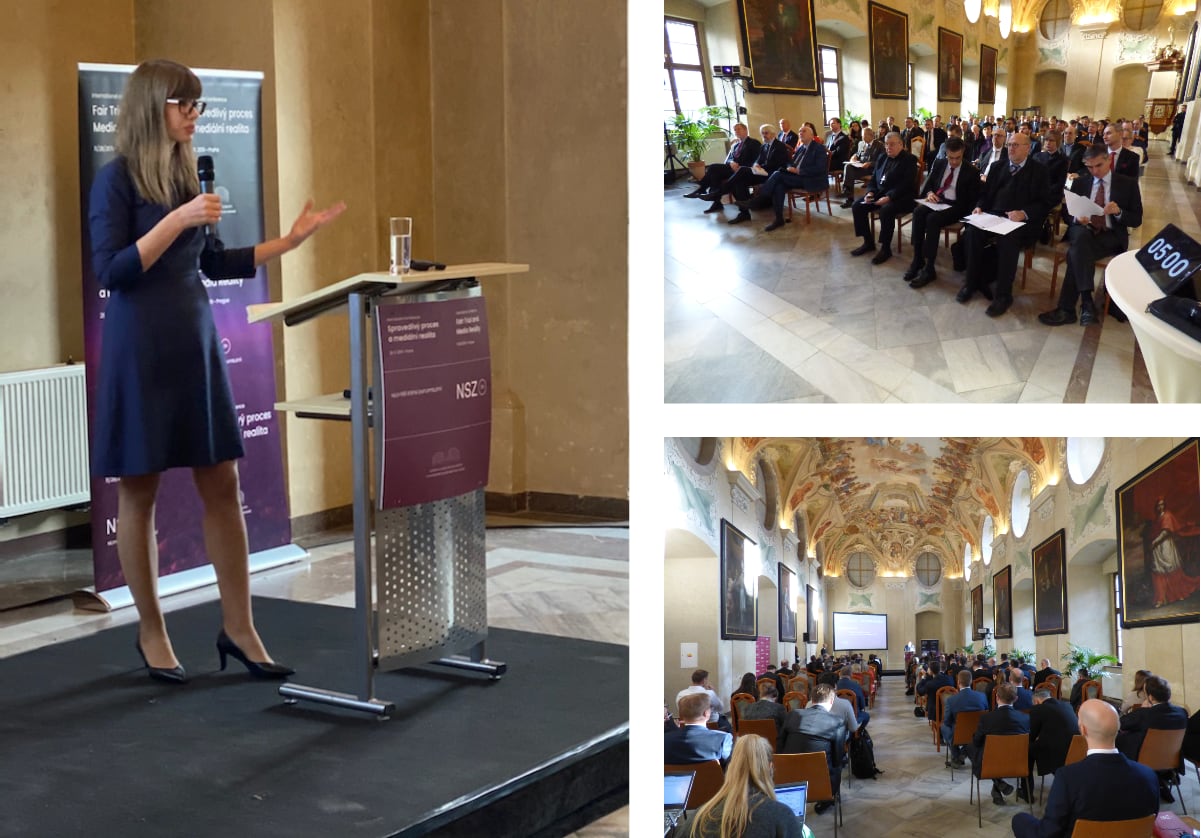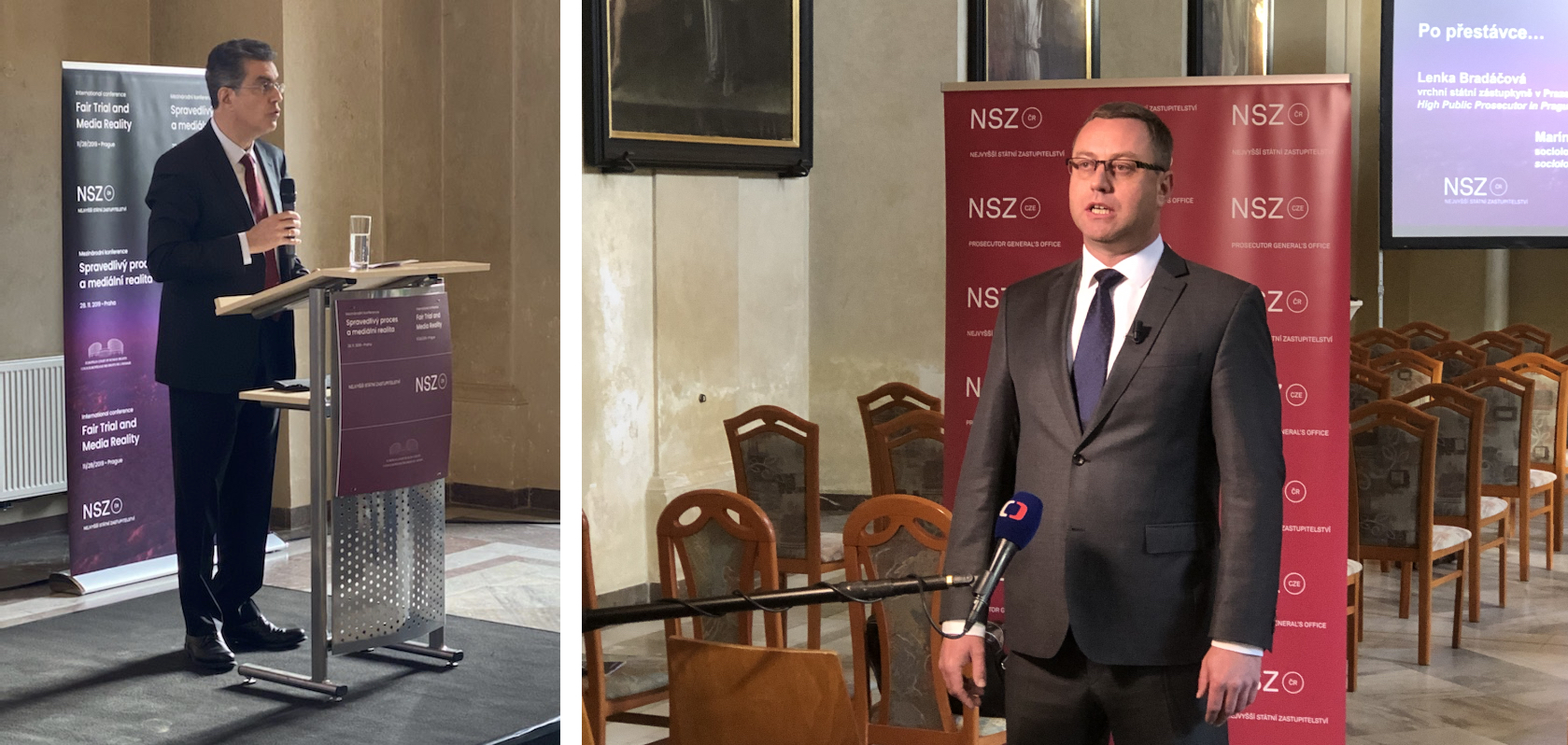Press release
The Prosecutor General’s Office Hosted an International Conference on Relations between the Justice and the Media
Prague, 28th November, 2019 – Is it possible to find the balance between the protection of privacy and the right to inform the public? Is it at all possible to protect the rights of all actors in criminal proceedings in the media environment today? What public interest should prevail? These and other burning questions were the topic of the international conference „Fair Trial and the Media“ which was organized by the Supreme Public Prosecutor‘s Office in cooperation with the European Court of Human Rights in the premises of the Strahov Monastery in Prague on Thursday, 28th November, 2019.

The purpose of the conference was to draw attention to the issue of complying with the principle of „fair trial“ at the time of the enormous and omnipresent media focus. In his opening addresss, General Attorney Pavel Zeman recalled the 30th anniversary of the Velvet Revolution: „It is undoubtedly right that both the media and the public prosecution have become self-confident players in our democratic development. But if we want to maintain and cultivate democracy, we regained 30 years ago, and if we want to maintain and develop the rule of law, we must realize that every game has its rules.“

A unique combination of speakers offered several perspectives of the ceaseless conflict of adverse interests to spread information, and conversely, to protect them. What kind of aspects of fair trial in relations to the media are in the focus of the The European Court of Human Rights? That is what its President Linos-Alexandre Sicilianos explained: „It is necessary to inform about the ongoing criminal proceedings responsibly, carefully, and with respect to the right to privacy,“ he stressed. The limits of freedom of expression and media reporting on court decisions were the topic of other Strassbourg court judges, Aleš Pejchal and Krzysztof Wojtyczek.
High Public Prosecutor in Prague Lenka Bradáčová explained why information about the ongoing criminal proceedings cannot be completely unlimitted. Vladimír Piskáček, former director of the Economia Publishing House, offered a comparison with the perspective of a practical journalist, by presenting his basis in a recent dispute about the extent of published information in a concrete ongoing criminal case. Media sociologist Marína Urbániková of Masaryk Univerity took an academic position on discussing the issue of information about criminal prceedings and credibility of justice.
The conference was attended by a number of significant guests, Speakers of both Houses of the Parliament of the Czech Republic, Presidents of the supreme judicial institutions, Cardinal Dominik Duka, whose hospitality was used by the Prosecutor General’s Office, and other judicial representatives and public figures.